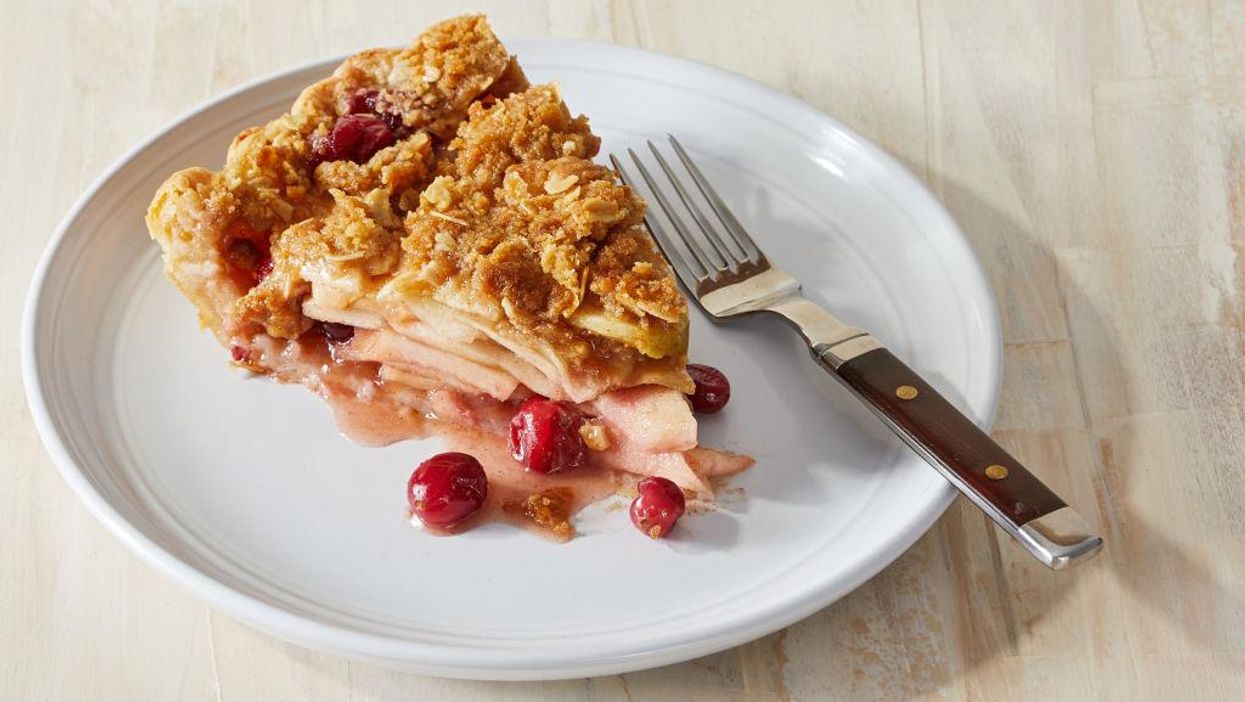
Tom McCorkle for The Washington Post via Getty Images

Is there anything better than a slice of homemade apple pie? An hour after it comes out of the oven when the delectable dessert still has warm apple slices swimming in ooey-gooey simmering sugar syrup, providing a perfect balance of sweetness and tartness? The ambrosial aroma of cinnamon and allspice dances around your nose, and the tender crust is buttery and flaky at the same time. But when a left-wing writer for the Guardian eats apple pie, all he can taste is the genocide of indigenous people with a heavy aftertaste of slavery.
Food writer and activist Raj Patel wrote an article for the Guardian titled: "Food injustice has deep roots: let's start with America's apple pie." Patel claims that apple pie is rooted in colonialism and slavery. He must be fun at dinner parties.
"In the drama of nationalist culture, the bloody and international origins of the apple pie are subject to a collective amnesia," Patel wrote. "The apple pie is as American as stolen land, wealth, and labor. We live its consequences today."
Patel then emphasizes that the apple pie and many of its ingredients are not from America, which is true. There were only small, wild crabapples native to North America until apples (Malus domestica) were brought from England to the Jamestown settlement in 1607. Preceding that, the original wild species of apples (Malus sieversii) was originally from Central Asia, in areas such as modern-day Kazakhstan and China, and introduced to Europe through the Silk Road trade routes. "Several societies were consuming apples in present-day Greece and Italy since 2000 BCE," according to the World Atlas.
Patel claimed, "Apples traveled to the western hemisphere with Spanish colonists in the 1500s in what used to be called the Columbian Exchange, but is now better understood as a vast and ongoing genocide of indigenous people."
Patel believes that the planting of apple trees in Virginia "were used to demonstrate to the state that land had been improved." He added, "John Chapman, better known as Johnny Appleseed, took these markers of colonized property to the frontiers of U.S. expansion where his trees stood as symbols that indigenous communities had been extirpated.'
Encyclopedia Britannica states that the "age of modern colonialism began about 1500, following the European discoveries of a sea route around Africa's southern coast (1488) and of America (1492)." However, the first recorded recipe for apple pie was written in 1381 in England, according to Smithsonian Magazine, noting that the pie was made with apples, figs, raisins, pears, and saffron, and most likely didn't include sugar. So which came first: the western colonialism or the apple pie?
The writer then links the sugar in the apple pie to slavery.
Not that the sugar on the crust is uniquely American. Sugar cane was first brought to the US by Jesuits in 1751, but most U.S. sugar remained an import until the Haitian revolution. When enslaved workers seized the French colony in 1791, European capitalists sought new sugar cane fields and workers. French merchants of sugar and slavery landed in Louisiana in the late 1700s. Within 50 years, the US produced a quarter of the world's sugar cane, and New Orleans had become a concomitant hub of the slave trade.
Patel notes that the American apple pie recipe is a "variant on an English pumpkin recipe," and that gingham, the plaid cotton cloth on which our apple pie rests, isn't American. He then relates the cotton in the cloth to a "war capitalism enslaved and committed acts of genocide against millions of indigenous people in North America, and millions of Africans and their descendants through the transatlantic slave trade," which he alleges was the "basis of finance, police, and government that made the United States."
Patel is going to have to try harder to cancel apple pie – how are you going to deny yourself a delicious slice of warm apple pie with a soft scoop of vanilla bean ice cream on top of the flaky crust?